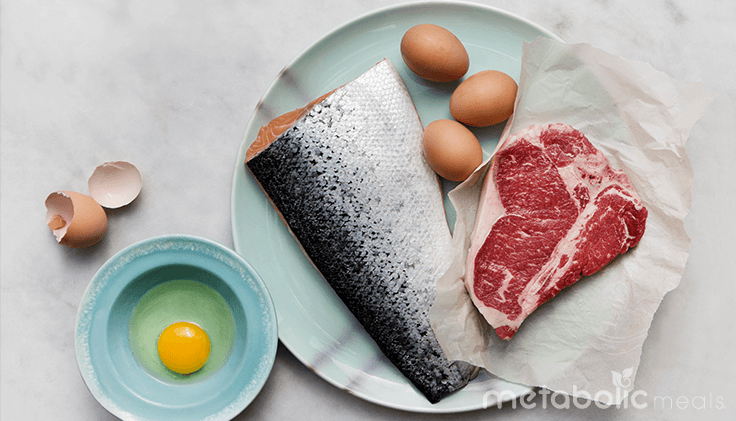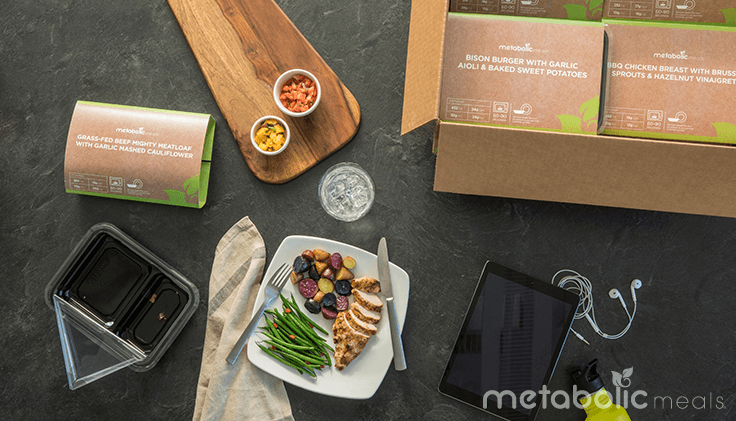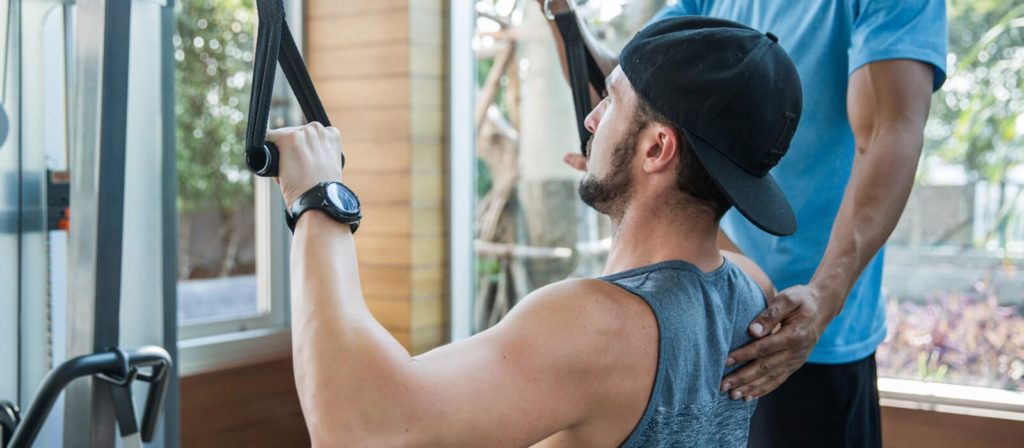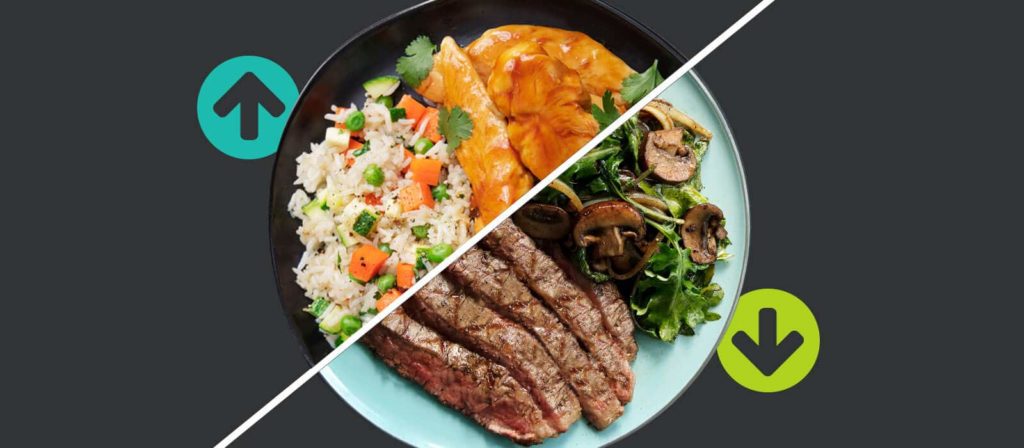Jamie B., 37, is a registered nurse. She has worked in orthopedics and neurology in a hospital setting, and she has worked on several research projects. She was 19 years old when she was diagnosed with Crohn’s disease. Jamie decided to take a more holistic approach to managing her symptoms by changing her diet and exercise program. This is her story.
Metabolic Meals: What were your first symptoms of Crohn’s disease, and how long had you been feeling “off” before you were diagnosed?

Jamie B.: My symptoms were primarily gastrointestinal. I had been feeling bad for about a year. I was away at college and thought that maybe stress and the college life were making me feel bad, but it was actually more than that. I was diagnosed through routine testing. When my GI symptoms went into remission, I was actually symptom-free and feeling well for a while. Then, I developed arthritis in my mid-20s. I experienced joint swelling, joint pain, and tendonitis. I had developed an autoimmune type of arthritis, and I really didn’t have the GI symptoms anymore.
MM: When your GI symptoms went into remission, had you made any lifestyle changes?
JB: Initially, I probably wasn’t doing much lifestyle change on my own. It was really pharmaceuticals that got my GI symptoms in remission.

MM: What sort of medications were you taking?
JB: I was on intravenous treatment, and then I took heavy doses of oral medications. At one point, I was on eight tabs of methotrexate, which is pretty much the maximum dose. I had a lot of nausea and other side effects from that medication.
MM: So when did you make the first round of lifestyle changes?
JB: When I was overwhelmed with the arthritis, I started exploring other options, things I could do on my own. After that, I started doing more diet and lifestyle modifications. I got a book by Jordan Rubin, who had Crohn’s disease and healed himself. I started practicing things he believed, which mostly centered on the quality of food you put in your body. I started switching to organic foods and paying attention to what I was eating. I was still eating gluten, and I ate very little meat and no red meat. I was also still working out throughout all of that — I was a big cardio person.
MM: What type of success did these early lifestyle changes have?
JB: Not the greatest. I was always reading and exploring new options. It wasn’t successful enough that I stopped there. Maybe I felt better overall, but I was still searching for something else.
MM: Since early efforts weren’t enough, let’s talk about the three big changes you’ve made over the last few years that have drastically reduced your symptoms. The first is changing your diet. Can you talk a little bit about what your diet has transformed into over the last few years?
JB: I’m completely gluten-free. I now use Metabolic Meals as a healthy meal delivery service. I also have incorporated meat, including red meat. And while I was always concerned about the quality of my food, now I know for sure that what I eat is high-quality. When you’re ordering at a restaurant or you’re doing things on your own, you might not know the quality of your food, but now I’m positive what I’m doing is good all around.

MM: We should note that the proteins you’ve added are organic and pasture-raised, so they have a high amount of omega-3. Before, when you didn’t have much protein in your diet, a lot of people don’t realize protein is needed for immune function and detoxification. Both things are really important for anyone with autoimmune issues. Having that protein quality and quantity is extremely important to let your body heal.
JB: Right.
MM: How has doing meal delivery helped you with this dietary transition?

JB: It’s definitely convenient. I’m not in a situation at work where I’m tempted to go eat in the cafeteria. When the food comes directly to my door, I’m taking those meals to work. And it’s not easy to get the quantity and quality of all these foods yourself — I wanted to be entirely gluten-free, so this is ideal for me. Even when I’m getting pasta, I’m getting it gluten-free.
MM: In the early days when you were trying to make these lifestyle changes, exercise became a big part of it, but it was almost exclusively cardiovascular exercise. Can you describe how differently you feel from changing over to mainly weight training?

JB: It’s remarkable. I feel like a completely different person after making these dietary changes and then incorporating different workouts. I never feel run-down. I feel so much stronger. And overall, I think I just look healthier.
MM: There are a lot of studies that show that excessive cardio wears on the immune system. Anyone that has an autoimmune issue has got to really be careful with overdoing cardiovascular exercise. These studies also show that you can get better results with strength training and moderating volume.
JB: I’m living proof of that. I do still supplement with some interval cardio workouts, but I still always get my weight training in.
MM: Your last big change was adding supplements. I think it’s important to note that your supplementation was based a lot on blood work instead of just randomly taking vitamins. They didn’t consist of the stuff that’s marketed heavily, like fat burners. Your blood work showed that you needed to increase your vitamin D levels, right?

JB: Yes. My vitamin D level initially was 12. I had no idea. I initially started on 2,000 iu per day. When I added a multivitamin in is when I really saw an increase. Those other vitamins were aiding in the absorption of the vitamin D.
MM: Yeah, magnesium in particular. Also, 2000 iu is a little too low of a dosage. After increasing vitamin D and other minerals, what’s your new level?
JB: My vitamin D is actually now at 72.
MM: There’s been a lot of research done on vitamin D and autoimmune issues. They’re finding that not only do they drastically help the symptoms, but it’s also a very preventative nutrient.
JB: Right.
MM: What’s the status of your medications now?
JB: After the second round of lifestyle changes, I started weaning off of them. It took about three months, but I’m now on nothing. I went from the MAX dosage of methotrexate to zero medications.
MM: How often do you feel a symptom now?
JB: One occurrence a month to one occurrence every two months. And they’re mild, not life-altering.
MM: That’s awesome. I’ll finish with this: Do you have any advice for people dealing with Crohn’s disease?
JB: Educate yourself. Knowledge is power. If you’re sick of the way you’re feeling, then go out there and make changes. People should know there are things that they can do in addition to seeing a doctor. You can make changes yourself that can be truly life changing.






